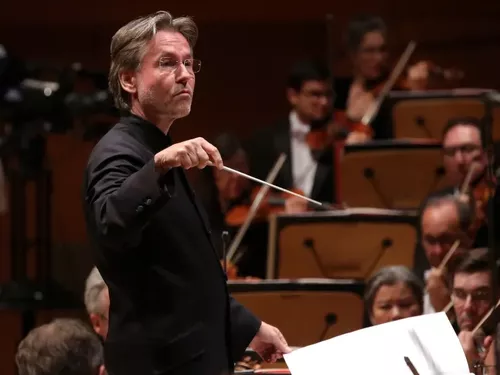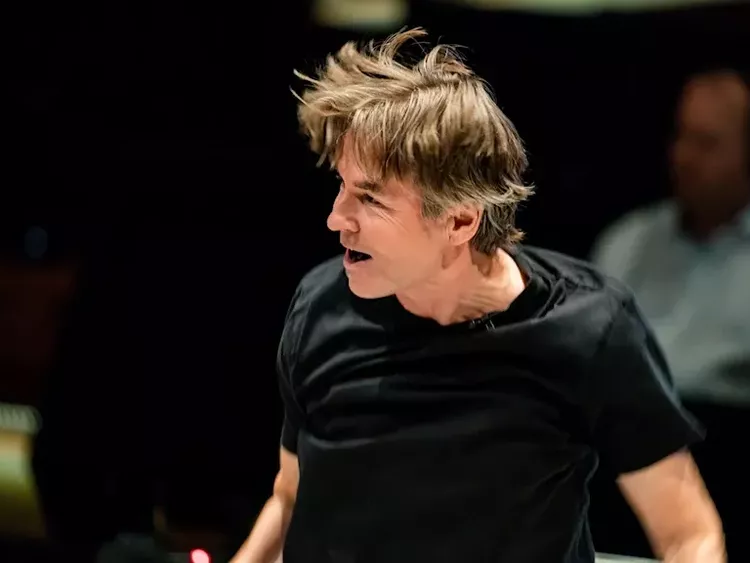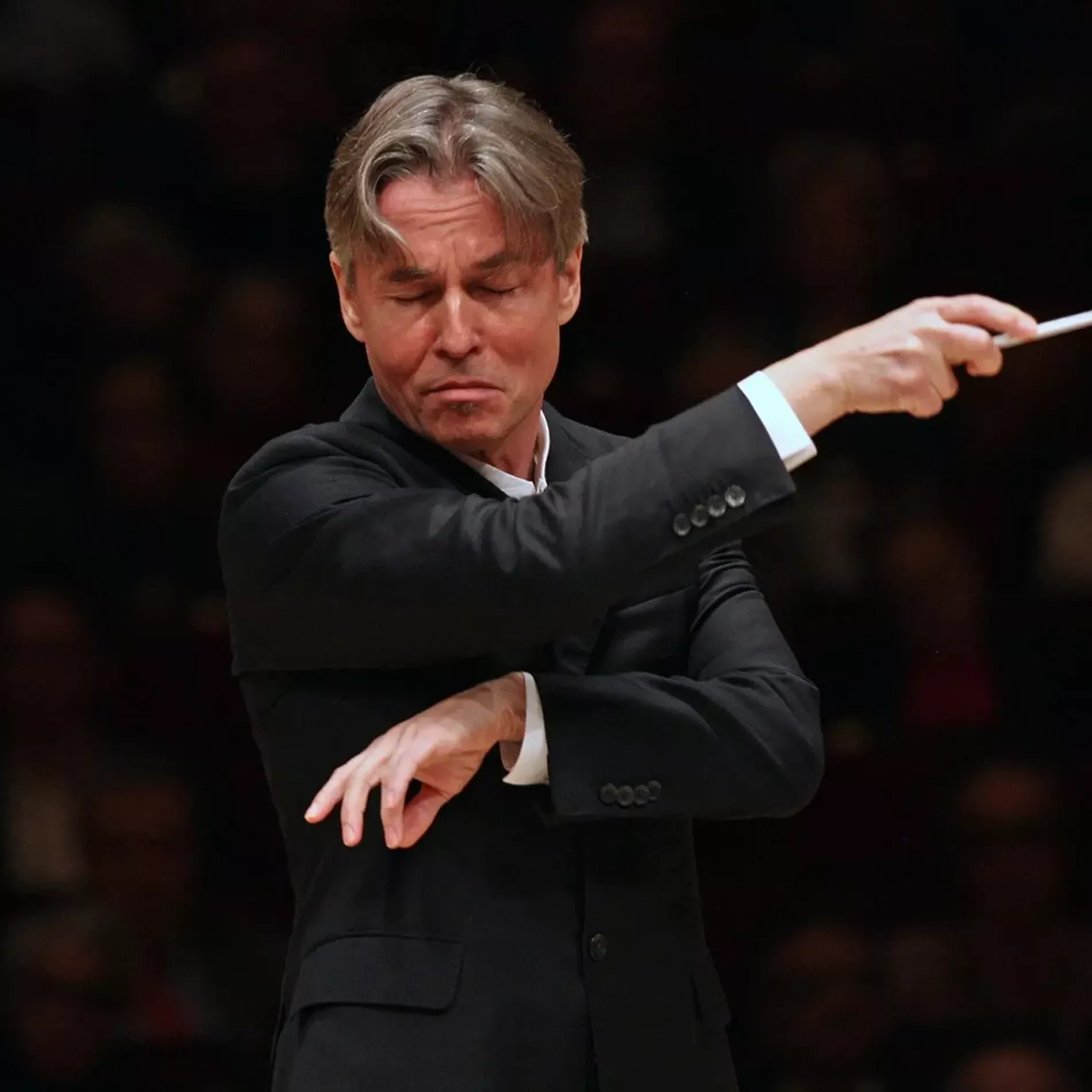As he prepares to board the same flight from New York as fellow 2024 Polar Music Prize laureate Nile Rodgers, Esa-Pekka Salonen chats to Vogue Scandinavia about the prestigious gong and why returning to Stockholm to receive it feels extra special
When Helsinki-born composer and conductor Esa-Pekka Salonen was eight years old, he heard Finnish singer Kirka’s pop rendition of Beethoven’s ‘Ode to Joy’ on the radio. “He had sort of a raspy voice, and I thought: ‘This is the most amazing thing, this is just unbelievable’. I remember that day very well,” Salonen says. From that day forward, Salonen propelled through an education in music, quickly turning his hand to writing his own. “Composing became my little kingdom,” he says. “Like a sanctuary, you know.”
Salonen’s acclaimed output as a composer began in the ‘70s, as did his dabbling in conducting, bringing him to Stockholm in 1984 to be principal conductor of the Swedish Radio Symphony Orchestra – a position he held for 11 years. So for the 65-year-old, who is now based in San Francisco, winning the prestigious Polar Music Prize is one thing, but returning to Stockholm to receive it adds another layer of meaning. “At this point in my life, I’ve received many different kinds of awards but this is special in many, many ways,” Salonen says. “On a personal level, Stockholm was my hometown in my youth, in the early days of my career. Another very special thing is that former Polar Prize winners are people who I really admire, who I consider role models, and also a few very close friends. It feels great to be somehow part of that fabric.”
In that fabric of Polar Music Prize ‘laureates’ are some of the classical music world’s greats (Yo-Yo Ma, Isaac Stern and Eric Ericson, to name a few) alongside their annual contemporary counterpart. This year, the contemporary music talent being bestowed an award is Nile Rodgers. “I’ve never met him, but I might today because he’s supposed to be on the same flight to Stockholm as me,” Salonen says. “Nile is one of those people who has had so much influence over the years, he’s done so much, he becomes almost like a natural phenomenon. Like some kind of weather,” he laughs. “He’s huge, both on and off stage.”

Photo: Craig T. Mathew and Greg Grudt/Mathew Imaging
While the Prize has, since it was established in 1992, observed a categorical divide between classical and contemporary, Salonen sees it as more of a blurred line. “As I get older, I’m even more convinced that genre itself means very little,” he remarks. “Whether it’s hip hop or it’s classical or jazz, what actually matters is the quality of the music. I’m less interested in categories and more interested in the actual level of innovation, quality and musicality.”
As a performer, I’m only as good as my last concert was.
Esa-Pekka Salonen
According to Salonen, one place that has delivered on a high calibre of music – both classical and contemporary – is Sweden. “The Swedish music industry is quite miraculous, especially if you think of the size of the nation,” he says. What is the answer to this wellspring of talent? “I don’t think anyone has the answer to that,” Salonen responds. “But I guess it’s a combination of lots of things. For decades, even pre-Abba, there were Swedish artists that were internationally known. And when there’s role models like that, then the younger, up-and-coming people think ‘OK, I can do that too’.”

Photo: Mika Ranta
Salonen returns to the idea of role models several times, which is unsurprising given his active interest and advocacy over the years in musical education. His insightful pointers for the next generation of talent are less about technique and talent and more about confidence in the art form. “Don’t be intimidated by the massive global problems that humankind is experiencing on a political and ecological level,” Salonen says. “Don’t let that make you feel that what you do as an artist, a musician, or composer, is not important. You should think the opposite: when times are difficult and everybody feels unsettled and insecure, that’s when great art and great music is needed more than ever. You have a role to play in all of this.”
Salonen’s return to Scandinavia will be brief: a couple of days for the award proceedings in Stockholm (“I have lots of friends in Stockholm and lots of great memories so the city is a big part of my life,” he says) which will be followed by a “short break” in his home of Finland. Though this offers a time for reflection on what has been an illustrious career, Salonen still sees himself very much in the midst of it. “I don’t see my life as a series of highlights. As a performer, I’m only as good as my last concert was. Every time I go on stage, I’m telling myself, ‘This might be the best concert you’ve every conducted in your life, let’s try to make that happen’,” he says. “I also want to believe the best is still ahead. It might be a cliche to say that a composer’s life is one endless learning curve, but this is actually the case.”
